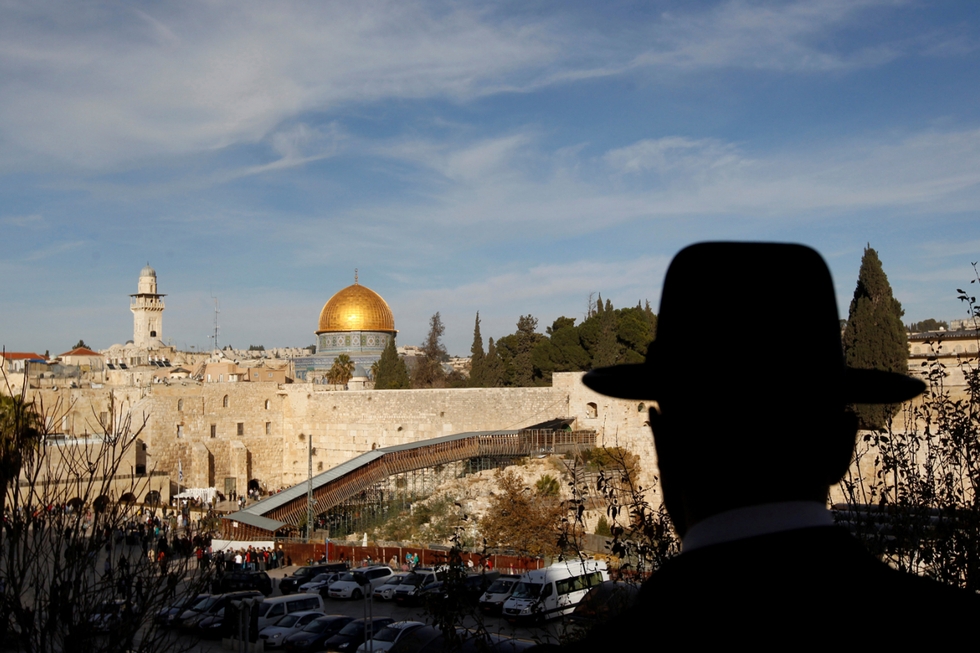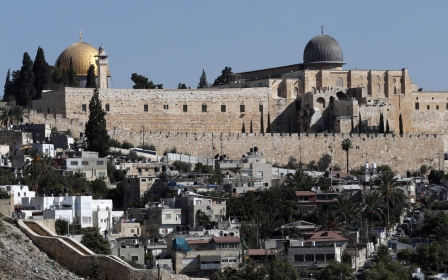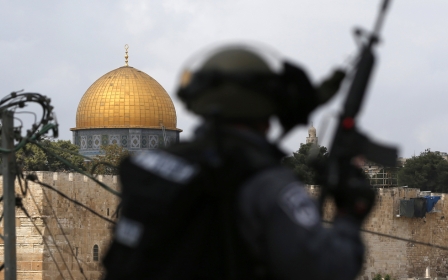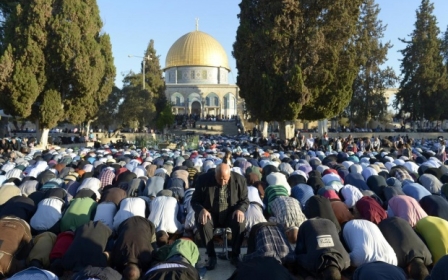UN agency adopts al-Aqsa resolution denounced by Israel

The UN cultural agency on Tuesday adopted a controversial Arab-sponsored resolution condemning Israel's actions at a flashpoint holy site in east Jerusalem that has sparked fury in Israel.
The UNESCO resolution on "occupied Palestine" was drafted by Algeria, Egypt, Lebanon, Morocco, Oman, Qatar and Sudan. It was endorsed on Tuesday by the executive board after being approved at the committee stage last week.
Referring throughout to Israel as "the occupying power", it condemns Israel for restricting Muslims' access to the al-Aqsa mosque compound - Islam's third holiest site.
But it is the language used to describe the Old City site, which is holy to both Muslims and Jews, that has infuriated Israel, which suspended its cooperation with the Paris-based UN body last week.
While acknowledging the importance of the Old City to "the three monotheistic religions" - Islam, Judaism and Christianity - the resolution refers throughout to the site by its Arabic names, al-Aqsa or al-Haram al-Sharif.
Jews however revere it as the Temple Mount, the holiest site in Judaism, where the first and second temples are said to have once stood.
Israel last week suspended cooperation with UNESCO after the resolution was first approved by a sub-committee.
Palestine's deputy ambassador to UNESCO, Mounir Anastas, welcomed the adoption of the resolution, saying he hoped it would pressure Israeli authorities to "stop all their violations", particularly the excavation of sites in and around the Old City.
"This is the wrong place to solve problems between countries or people," he told the AFP news agency.
The UN body also on Tuesday adopted a separate, less controversial resolution on schools in Palestinian territories.
Participants said the two resolutions were adopted by 24 votes to six with 26 abstentions and two absentees at the committee stage last week.
In April, it passed a resolution condemning "Israeli aggressions and illegal measures against the freedom of worship and Muslims' access to the al-Aqsa Mosque", also failing to mention the site's Jewish name of the Temple Mount.
That led Netanyahu to propose a "seminar on Jewish history" for UN staff in Israel.
In 2011 the Palestinians were admitted as a member state of the organisation, which led the United States to suspend its payments to UNESCO.
The latest resolutions created unease at the top of the organisation, with Michael Worbs, who chairs UNESCO's executive board, saying he would have liked more time to work out a compromise.
"We need more time and dialogue between the members of the board to reach a consensus," he told AFP.
A UNESCO official said the organisation had received threatening calls and messages on social media over the resolution dealing with east Jerusalem.
UNESCO chief Irina Bokova distanced herself from the resolutions, saying in a statement: "Nowhere more than in Jerusalem do Jewish, Christian and Muslim heritage and traditions share space."
This article is available in French on Middle East Eye French edition.
New MEE newsletter: Jerusalem Dispatch
Sign up to get the latest insights and analysis on Israel-Palestine, alongside Turkey Unpacked and other MEE newsletters
Middle East Eye delivers independent and unrivalled coverage and analysis of the Middle East, North Africa and beyond. To learn more about republishing this content and the associated fees, please fill out this form. More about MEE can be found here.




